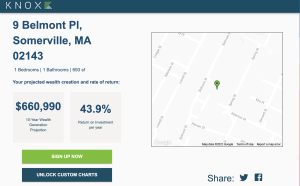- April 19, 2021
- by:
- in: Blog
French startup Alan has raised a $220 million funding round at a $1.67 billion valuation (€185 million and €1.4 billion respectively). Coatue is leading the round with Dragoneer, Exor, and existing investors Index Ventures, Ribbit Capital and Temasek also participating. Alan has been building health insurance products from scratch. When I first covered the company
French startup Alan has raised a $220 million funding round at a $1.67 billion valuation (€185 million and €1.4 billion respectively). Coatue is leading the round with Dragoneer, Exor, and existing investors Index Ventures, Ribbit Capital and Temasek also participating.
Alan has been building health insurance products from scratch. When I first covered the company back in 2016, the startup had just managed to get approval from regulators to become an official health insurance company.
Since then, it’s been a not-so-slow and steady growth story as the company now covers 160,000 people. Overall, Alan generates over €100 million in annualized revenue. While most of that revenue is spent back on claims, it’s an impressive revenue trajectory.
Like other insurance companies, Alan has some capital requirements to comply with health insurance regulation. Alan has to raise more if it wants to insure more people. But that’s just part of the story as the startup still had enough cash on its bank account for the next 12 to 18 months.
“The context is that we managed to end the year 2020 very strong, finally — and I say finally because it’s been stressful until the last minute,” co-founder and CEO Jean-Charles Samuelian-Werve told me.
Alan managed to meet its goals and international expansion finally started to take off. Many startups try to raise when they’re in a strong position. You shouldn’t wait until you have your back against the wall and that’s exactly what’s happening here.
“We thought it was the right time and we had multiple term sheets. Even though valuation is really good we first looked at a partner that has a really long-term vision,” Samuelian-Werve said.
With today’s funding round, the company can iterate on its core product — health insurance — and everything that makes Alan a super app — a single app that lets you access several services. In France, employees are covered by both the national healthcare system and private insurance companies. Alan sells its products to other companies so that their employees are automatically covered by Alan contracts. It’s a sort of B2B2C play.
9,400 companies have opted for Alan in France, Belgium and Spain — the company’s home market remains its main market. Clients include WeWork, Deliveroo, JustEat, Vitaliance and Big Mamma. By 2023, Alan wants to reach 1 million members.
In order to gain more customers, Alan is betting on three pillars — product innovation, customer satisfaction through additional services, and expansions to new verticals and markets.
When it comes to product innovation, Alan has designed a modular insurance builder. Small companies can subscribe to Alan in a few clicks. Big companies can tweak every single parameter to build the right insurance package for them.
After that, the company tries to make it easy to manage your health insurance. You’ll soon be able to automatically manage sick leaves, change the employee affiliation status, etc. As for employees, the company has always promoted a transparent offering. For instance, you should know how much you’re going to pay out of pocket when you see a doctor. You can see a map of doctors around you and how much they charge on average. This way, there’s no surprise.
Alan also tries to reimburse you as quickly as possible. If it’s a straightforward claim, the startup tries to analyze and categorize your claim as quickly as possible and then issue an instant SEPA transfer. 75% of claims are reimbursed and available on your bank account in less than an hour.
These core product features definitely contributes to customer satisfaction. But Alan is expanding beyond insurance products with several additional services that should increase retention. For instance, you can chat with a doctor, get medical advice for your baby’s health, get a free meditation app subscription, start a telehealth appointment via a partner, talk with someone about your mental health, etc.
Those services contribute to turning Alan into a super app for your health. Essentially, as soon as you’re insured by Alan, you become a member and can access all those services without additional charges.
Eventually, Alan plans to launch a personal care guidance service to help you contact the right healthcare professional based on your health issue. In Spain, Alan can already book appointments for you.
Finally, Alan plans to reach new customers through aggressive expansion goals. The company plans to hire 400 people within the next three years and expand to other industries with tailor-made insurance products, such as retail, wholesale and manufacturing.
While the company is still going to focus on France, Belgium and Spain in the near future, it is looking at opportunities across Europe. So let’s see where Alan is going to expand next.





 Today, we received a response: Parler will be reinstated on the App Store. Huge win for free speech.
Today, we received a response: Parler will be reinstated on the App Store. Huge win for free speech. 

